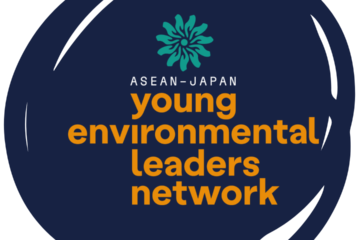Reported by Teo Yi Ting Joy
Key takeaways
- Educate youths about marine plastic pollution: The interview video series featured different aspects about marine plastic pollution to widen the youths’ understanding and knowledge so that they know more about marine plastic pollution and what they can do to reduce it.
- Gained more insight on the youths’ thoughts about marine plastic pollution: Through the interviews, we were able to understand more about what the students/teachers thought about the issue of marine plastic waste.
- Spread more awareness about marine plastic pollution: Through the interview series, we were able to spread more awareness about this issue not just to our followers, but also the interviewees who have participated. This allowed them to recognise the pressing issue of marine plastic waste, encouraging them to do more to reduce their own personal usage of plastics.
Main highlights
Include complete information on the activity, such as:
- Date: 1 October to 31 December 2024
- Venue: Online
- Participants: Online followers, interview participants
- No. of participants: 11 interviewees and an average of 300 views per video
Activities implemented
(https://www.instagram.com/see_the.seas?igsh=bzZkYnR4OTdjbmJ0) Every alternate week, an interview video featuring students and teachers from Hwa Chong Institution will be posted on our Instagram account, and each video will have a different theme relating to marine plastic pollution, such as the reasons for marine plastic pollution, the impacts it may cause and what we can do to reduce marine plastic pollution.
The table below shows our schedule for posting the weekly video series as well as the interview video series, and what we aim to achieve by posting that particular video/post. Each video would usually consist of 5 questions relating to the theme of the week to spread more awareness and educate interviewees and viewers.

Schedule:
| October Week 1 | Initiation of weekly Instagram Posts (The Issue in our seas) | Start of ‘Marine Plastic Waste: How much do you know?’ Interview Series To focus on how much participants know about the problems our seas face |
| October Week 2 | Weekly post: Marine Plastic Waste in Singapore | |
| October Week 3 | Weekly Post: What can we do? Part I | Marine Plastic Waste: How much do you know?’ Interview Series To focus on whether participants know what to do to help save our seas and reduce marine plastic waste pollution |
| October Week 4 | Weekly Post: What can we do? Part II | |
| November Week 1 | Weekly Post: Impacts of Marine Plastic Pollution | Marine Plastic Waste: How much do you know?’ Interview Series To focus on whether participants know about the impacts of marine plastic waste |
| November Week 2 | Weekly Post: Impacts of Marine Plastic Pollution | |
| November Week 3 | Weekly Post: Impacts of Marine Plastic Pollution | Marine Plastic Waste: How much do you know?’ Interview Series To focus on whether participants know about the impacts of marine plastic waste |
| November Week 4 | Weekly Post: Governmental Approaches | |
| December Week 1 | Weekly Post: Beach Clean-ups — A Summary | Marine Plastic Waste: How much do you know?’ Interview Series To focus on whether participants know about how beach cleanups are conducted in Singapore, average waste collected, how many NGOs are there etc |
| December Week 2 | Weekly Post: Campaigning for a cleaner Singapore | |
| December Week 3 | Marine Plastic Waste: How much do you know?’ Interview Series To focus on whether participants know about how we can change our lifestyles to better save the seas | |
| December Week 4 | Christmas Post Series |
Evaluation
We noted that our videos had an average of 300 views each. One video had the most number of views, 398. We realised that online viewers who recognise the interviewees would be more inclined to watch the entire video to support their friends, fulfilling our aim of spreading awareness and educating the public.
Furthermore, our interview series also allowed us to understand how much youths actually know about marine plastic pollution after interviewing them. This enabled us to gauge their perceived urgency towards the issue of marine plastic waste, and share facts about marine plastic pollution to them after each question which would immediately educate them on the effects of marine plastic pollution.
We noted that most interviewees did not know about the true severity of marine plastic pollution, and were shocked when they heard how badly the ocean ecosystem is now affected by pollution. However, we feel that for future video series, perhaps more publicising could be done so that the videos can reach out to a wider audience and educate more.


